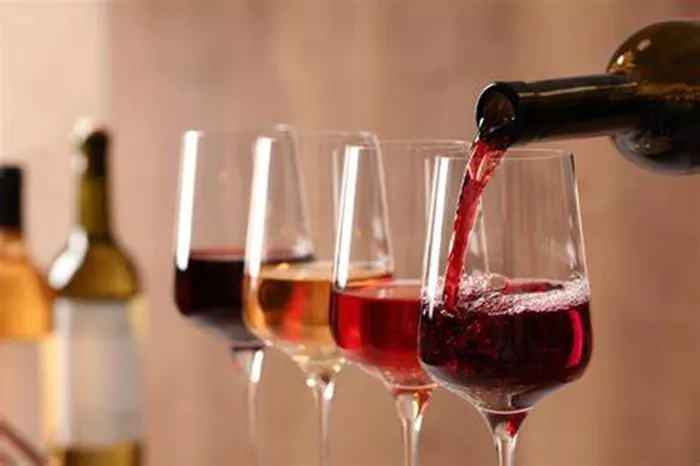In a remarkable collaboration between U.S. and Canadian wine producers, Washington state wineries came to the aid of British Columbia’s wine industry last summer after a catastrophic freeze destroyed up to 90% of the province’s grape harvest. The event, described by the British Columbia government as a “catastrophic loss,” began with a series of moonless nights in January 2024, when a stealthy freeze swept through the Okanagan Valley, home to 86% of the region’s wine production. Many vines were killed outright by the harsh weather.
As spring arrived, the full extent of the damage became clear. The losses were staggering, with U.S. $254.7 million in damages to vineyards and wineries, and an additional U.S. $72.9 million in economic losses affecting workers, including grape pickers, winemakers, and hotel staff.
To the south, Washington state’s wine industry found itself in a fortunate position, thanks to a bumper crop and a significant cutback in grape purchases by Ste Michelle Wine Estates, the state’s largest wine producer. With excess grapes and favorable growing conditions, including ample water, rich soil, and a strong land base, Washington growers were in a prime position to support their Canadian counterparts. Colleen Frei, executive director of the Washington Winegrowers Association, noted that 2023 had been a particularly good year for the state’s vineyards.
By mid-March, the Washington Winegrowers Association had published a comprehensive guide for navigating the complex regulations surrounding cross-border grape shipments. Despite the challenges posed by a weakened Canadian dollar, the Washington growers were ready to offer competitive prices to Canadian wineries. At least 25% of the region’s 300 wineries reached out to U.S. vineyards, according to Craig Pacheco, founder of Vin-Star Consulting, which facilitated the connection. While Washington supplied the majority of the demand, premium Pinot Noir from Oregon’s Willamette Valley was also sought after by British Columbia’s wineries.
However, despite the urgency of the situation, it took several months for Canadian officials to approve legislation that would allow wines made from out-of-province grapes to avoid additional taxes. Ron Kubek of Lightning Rock Winery in Summerland expressed frustration at the slow response from the provincial government, comparing it to the swift and supportive actions taken by Washington’s wine community.
“The Washington State Winegrowers set up a wine grape dating service — I wish our government did one percent of what yours did,” Kubek remarked, recounting his visits to Washington wineries in search of grapes.
The freeze, which wiped out vast swaths of vineyards, has been described as an existential crisis for British Columbia’s wine industry. Experts estimate that it could take years for the industry to recover, with replanting costs at about U.S. $50,000 per acre, not including ongoing farming and production expenses. Full recovery is unlikely before 2031, according to Pacheco, who warned that it will take several years for new vines to yield productive harvests.
The disaster has led to a wave of financial distress in the region, with a reported 25% of Okanagan Valley wineries already listed for sale. Some real estate experts, such as Philip Fox, suggest that many more may be available under the radar. “There’s a ton of wineries who, if you knocked on their door today and asked if they’d like to sell, they’d rush to get a pen,” Fox said, noting that a consolidation of smaller wineries into larger operations is likely.
In addition to the freeze, the British Columbia wine industry has also suffered from a lack of tourism, exacerbated by seasonal wildfires. Christine Coletta, owner of Haywire Winery and Okanagan Crush Pad, blamed government warnings against travel in 2023 for damaging their peak sales season.
Despite these setbacks, the Washington State wine community has been remarkably supportive. Coletta, along with other Canadian vintners, praised U.S. growers for selling high-quality grapes at below-market prices. In a show of solidarity, U.S. vineyards, including those from Lake Chelan and Prosser, Washington, provided a lifeline to their Canadian neighbors. Kubek recalled receiving several tons of grapes from Washington, including organic varieties like Riesling and Syrah.
Jeff Andrews, of Andrews Family Vineyards in Prosser, Washington, echoed the sentiment of cooperation. “We’re all in this together, right?” he said, explaining how his vineyard supplied Canadian wineries with everything from small orders to larger shipments of grapes. Despite the international border separating them, Washington growers were quick to lend a hand to their Canadian counterparts in their time of need.
As British Columbia’s wine industry begins its long recovery, the shared effort between U.S. and Canadian winegrowers has demonstrated the resilience and solidarity of the North American wine community.
You Might Be Interested In:


